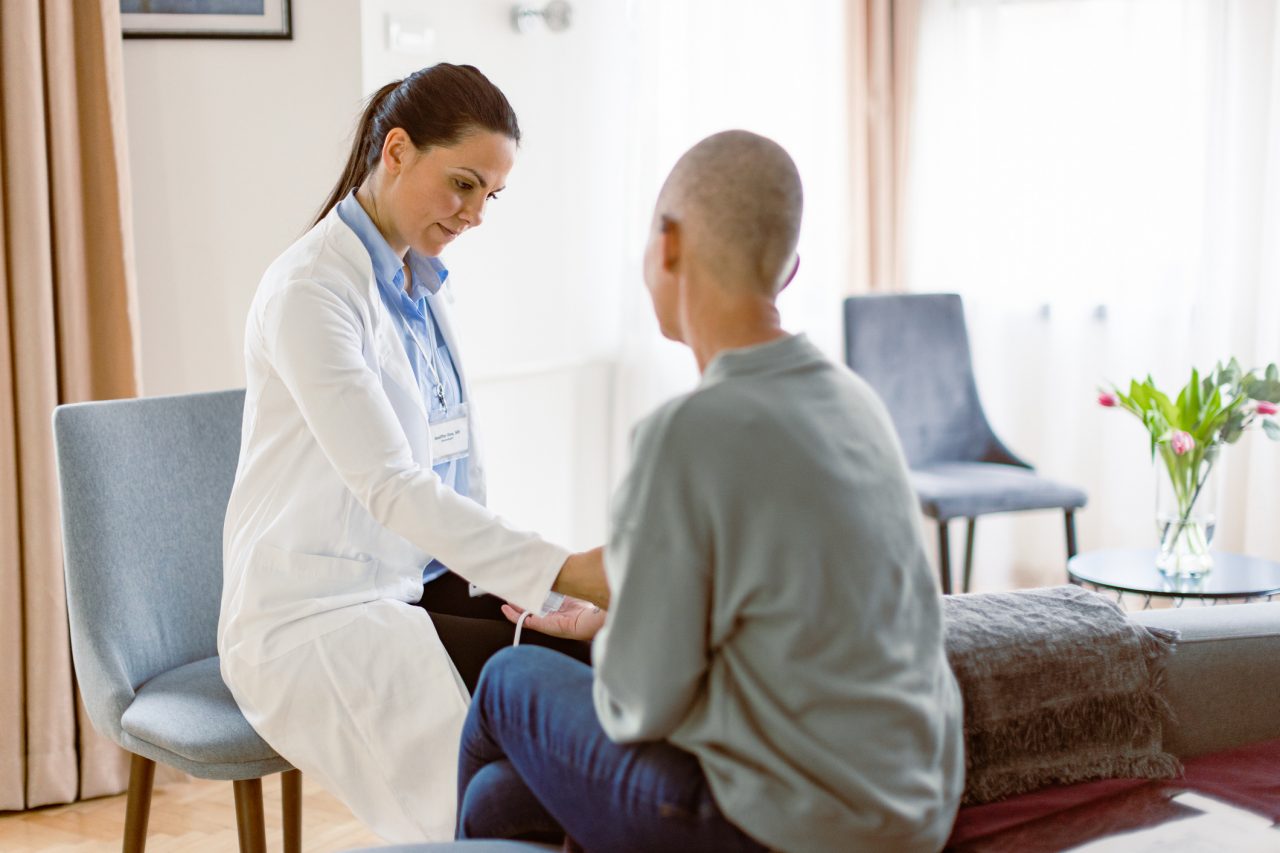Login
Cancer Screenings and Prevention
Cervical Cancer Prevention
Lower your risk through vaccines and regular testing.
Lower Your Risk
Human Papillomavirus, or HPV, is the greatest risk factor for cervical cancer. HPV can also cause cancers of the vulva, vagina, anus and oropharynx (part of the throat), and it is the most common sexually transmitted infection. Nearly 80 percent of all women — and men — in the United States carry this cancer-causing virus, but most do not even know they have it.
The American Cancer Society recommends routine HPV vaccination for girls and boys starting at ages 11 or 12.
The Centers for Disease Control recommends two doses of HPV vaccine for all adolescents at age 11 or 12 years. A 3-dose schedule is recommended for those who get the first dose on or after their 15th birthday.
Cervical cancer screening is effective for detecting and preventing cancer of the cervix. HPV and pap testing can alert your provider to abnormalities that can be treated before they actually turn into cancer.
Find a Provider or call us at 800-693-CARE.
Screening for Life and Health Care Connection
Don’t let lack of insurance or copays keep you from getting screened!
Screening for Life and the Health Care Connection Screening for Life provides payment for cancer screening tests recommended by your doctor if you meet age, income and insurance guidelines. This program is a cooperative effort of the Delaware Division of Public Health and the U.S. Centers for Disease Control and Prevention (CDC).
The Health Care Connection simplifies the eligibility screening process to help uninsured Delawareans access primary care and medical specialists, disease prevention services — such as cancer screenings — and helps ensure access to prescription programs, laboratory and radiology services.

To learn more, call 302-733-HOPE or visit Screening For Life or the Health Care Connection & Voluntary Initiative Program.
Related Content
Contact Us
Helen F. Graham Cancer Center & Research Institute
4701 Ogletown-Stanton Road
Newark, DE 19713


